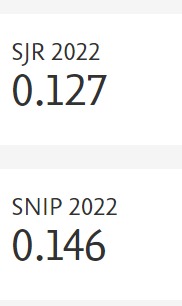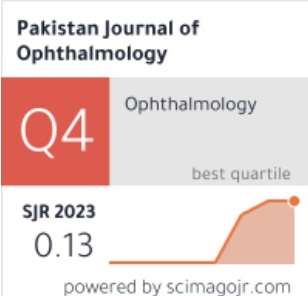Trabeculectomy: A Long Term Follow-up of 455 Cases
DOI:
https://doi.org/10.36351/pjo.v24i3.696Abstract
Purpose: To evaluate the outcome and complications of trabeculectomies performed at two tertiary care hospitals.
Material and Methods: A prospective case series of 455 cases of trabeculectomies performed at the Civil Hospital and Lyari General Hospital Karachi from 2000 to 2006. The preoperative and postoperative ocular data of 150 eyes in 120 patients is evaluated.
Results: Average follow-up period was 36.2 months with a minimum of 3 months and maximum of 60 months. Only 33% completed follow –up of at least two years so included in the analysis. Success, defined by a postoperative IOP ? 21 mm Hg or a decreased postoperative IOP of at least 25% from preoperative pressure if the preoperative IOP was already ?21 mm Hg, was observed in 121 eyes (82.6 %) at last follow-up without any medication. Notable complications included hyphema of more than 5 days duration in 11(7.3%), Shallow anterior chamber in 6(4.7%), hypotony in 7(4.7%), Choroidal detachment in 2(1.3%), uncontrolled intraocular pressure, requiring further intervention, in 7(4.7%) and endophthalmitis in 1(0.7%). At 2 year follow-up cataract formation was observed in 32(21.7%) cases.
Conclusions: Results of this study suggest that the outcomes of trabeculectomies performed in this region have a high success rate, comparable with previous studies in the literature. Rates of complications are overall similar to those found in the published literature. Poor follow-up and non affordability for drugs makes trabeculectomy as a method of first choice.






